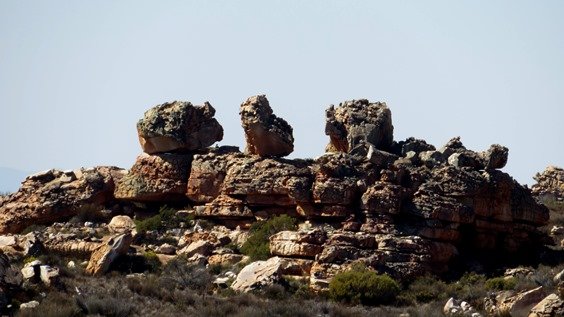What is the question?

Author: Ivan Lätti
Photographer: Thabo Maphisa
The conditions contingent upon the shaping of special spots over the aeons in nature, conjure questions in human minds.
The questions big and small, naïve or learned, fanciful or serious are determined by personality, education, experience, lifestyle and the prevailing circumstances of the moment. Also, by the intent with which a question is posed, to whom it is addressed and, of course, what the particular special spot stumbled upon looks like.
How big were these rocks when the first plant germinated here? What did the first land animal that walked here look like? When will the first house be built here?
Is there a way of kindling the human mind into vicariously revisiting special spots vividly, without camera, hypnosis or drugs? (That would ruin the tourism industry.)
The questioning mind is so useful in discovery. It has allowed humanity a devastating competitive edge. At the time of writing the first result Google yielded to questioning mind was: “A questioning mind is the most cherished resource man has and the rarest.”
Now why the paradox? And, oh yes! Dogma should be avoided. So, thinking can be good or bad, depending on how it’s done. Thinking results in awful crimes, embarrassing blunders or Noble Prizes, depending on evil intent or good questions!
Let’s not spoil the visit. Contemplating rock is the making or breaking of all sorts of rockspiders, depending on the questions they ask, the answers they receive and the quality of their subsequent thinking.

